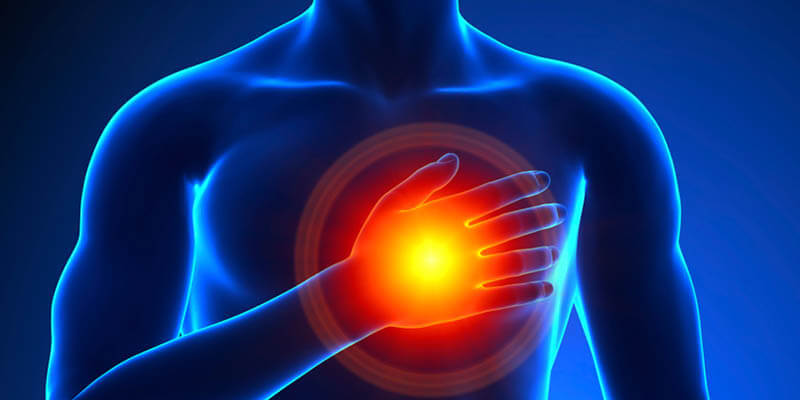
What if you suddenly suffer a heart attack. Someone nearby with help you, right? But what if you're alone at the time? What should you do?
How to Recognize That You Are Having a Heart Attack?
- Chest Pain: Most heart attacks involve pain in the chest that lasts more than a few minutes or goes away and then comes back. The pain may feel like pressure, squeezing, or fullness.
- Discomfort in Areas of the Upper Body: This can include pain in one or both arms, usually in the left arm, the back, neck, jaw or stomach.
- Shortness of Breath: Someone may experience shortness of breath with our without chest discomfort.
- Other Signs May Include: breaking out in a cold sweat, nausea or lightheadedness.
What You Should Do In the Event of a Heart Attack
A rumor that has spread across the internet claimed that anyone who feels heart attack symptoms while alone should cough repeatedly and vigorously, repeating a breath about every two seconds, until help arrives or normal breath returns. This is WRONG, according to the American Heart Association.
"'Cough CPR' should not be taught in lay-rescuer CPR courses because it is generally not useful in the pre-hospital setting. In virtually all lay-rescuer CPR courses, the finding that signals an emergency is the victim's unresponsiveness. Unresponsive victims will not be able to perform 'cough CPR'," says the American Heart Association.
The coughing technique known as "cough CPR" has been used in hospitals by physicians to treat sudden irregular heartbeats in monitored patients during cardiac catheterization procedures. Traditional CPR is not used to treat heart attack victims who remain conscious, only if the heart attack is followed by cardiac arrest.
In the event of a heart attack and you are along, the American Heart Association recommends:
- Understanding the warning signs and recognizing them.
- Taking immediate action by calling 9-1-1
The signs of sudden cardiac arrest include:
- Sudden loss of consciousness
- Loss of responsiveness
- Abnormal breathing
The best way to survive a heart attack is to avoid one altogether. Treat heart problems as they occur and get regular screenings and test.
Source:
Mended Hearts
Cure this Contagious Rumor: Coughing Won't Fend Off a Heart Attack
http://mendedhearts.org/resources/about-heart-disease/the-coughing-rumor
